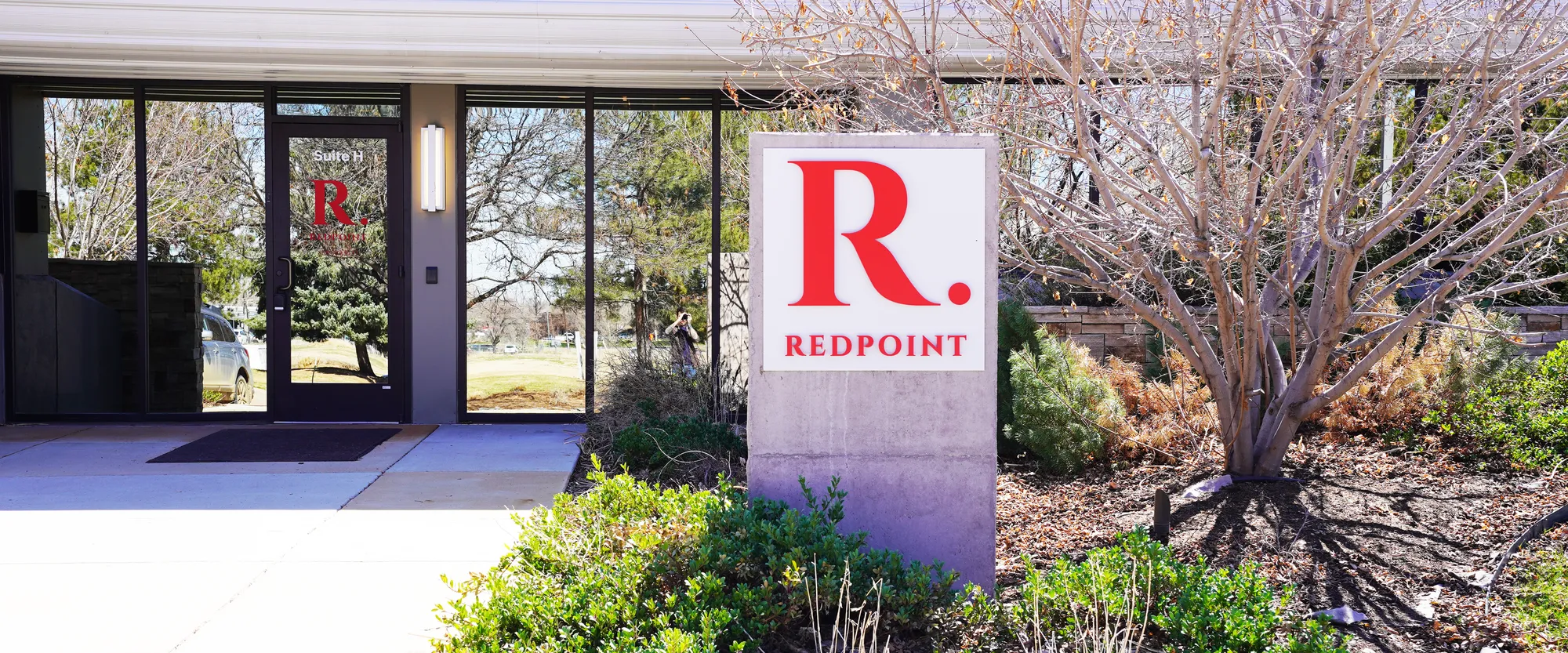
Combatting Opioid and Fentanyl Addiction
Discover how The Redpoint Center's dedicated team helps individuals overcome opioid addiction with personalized and effective treatment plans.

Discover how The Redpoint Center's dedicated team helps individuals overcome opioid addiction with personalized and effective treatment plans.
Opioids are a dangerous and widespread class of drugs with hazardous and addictive properties. While prescription opioids are found in dedicated medical settings, they are highly regulated due to their potent effects. Even prescription opioids such as OxyContin, Vicodin, and morphine need to be carefully monitored.
However, from misusing prescription opioids to illicit opioids like heroin, opioid use has become a common concern across the United States. Addressing opioid addiction and understanding the effects of the drug is instrumental in taking the first step toward your sober future.
We at The Redpoint Center know how difficult the battle with opioid use can be. However, recovery is always possible, and we are ready to create a treatment plan for you on your unique healing journey.
Opioids are a potent class of drugs often used as pain relievers, typically following surgeries or dealing with cancer or other intense pains. However, their euphoric effects have also caused them to see an ever-rising increase in illicit use.
Opioids are commonly abused drugs that impact the lives of many. Even when used properly, opioids are still incredibly addictive, and overcoming addiction to opioids and their effects is a complicated – but possible – task.
While many opioids are taken as pills, they can also come in the form of powders, patches, or taken intravenously as injections. There is never a safe way to engage with opioids, and even those under a prescription should use them only as needed and prescribed, under the supervision of a doctor.


Opioids are also either natural, synthetic, or semi-synthetic in their creation, indicating how much of a particular drug is made using natural elements or if it was created in a lab. However, whether an opioid is natural or synthetic does not diminish its destructive properties, and many natural opiates like heroin are equally as harmful as synthetic forms.

The opioid epidemic is rightfully the subject of much discourse. In 2019 alone, some 10.1 million people nationwide misused opioids, according to the Department of Health and Human Services. Opioids have also claimed almost 70,000 lives due to overdose in 2020.
While such a number is staggering, it doesn’t reflect the myriad of other ways in which opioids have affected individuals and families across the nation. Opioids can affect people of any age, financial status, race, sex, or other demographic.
Regardless of how you or a loved one were exposed to opioids, there is always help available. The clinical approach at The Redpoint Center can help you address the use of opioids in a safe and dedicated environment.
Fentanyl is a synthetic opioid that has seen a drastic increase in use across the nation and is often found to be around 50 to 100 times more potent than other opioids like morphine. However, its potency is not its only danger.
Fentanyl is commonly found cut into other drugs, from other opioids to increase their potency or euphoric effects, or even cut into marijuana, causing dangerous and life-threatening side effects for those whose bodies are not expecting or prepared to process such an intense opioid. Others may also find fentanyl masquerading entirely as other drugs such as heroin.
With its ability to be cut into other substances, those using illicit drugs may not be fully aware of what they are buying or using, leading to dangerous, life-threatening results. Fentanyl has led to an increase in overdose deaths, with Colorado alone experiencing a tripling of fentanyl overdose deaths between 2006 and 2020 as its prevalence continues to rise.
Each individual will have their personal journey with opioids, and these potent drugs will affect each individual in different ways. However, some of the common effects of opioid use include:
Opioid use also has various effects on the body, from causing dilated pupils, dry and itchy skin, sudden weight loss, and even leaving track marks on the skin at injection sites. Between the lack of a proper diet and even the avoidance of usual hygiene routines, the physical ramifications of opioid use can be challenging to overcome.
The behavioral impact of opioid addiction can also be just as devastating, with many struggling with opioid addiction channeling finances from other necessities, engaging in self-isolation practices from friends and family, stealing from loved ones, or experiencing decreased workplace performance and attendance.
Opioid abuse can affect every facet of daily life. It is paramount to take a holistic approach to treatment to effectively address how each of these effects has impacted you or your loved one.
The caring, trained clinicians at The Redpoint Center are available to help you understand and address how opioids have affected your life. We know that healing from opioid addiction is a journey with innumerable personal factors at play, and we empower each client to create their own best approach to a healthy, sober life.
By providing you with several proven therapeutic options, all while supporting you with trained medical staff and dedicated clinicians, we are committed to helping you overcome opioid addiction by treating the whole self while developing personalized coping strategies and introducing you to a supportive community of peers. Recovery is always possible, and The Redpoint Center is ready to help you take your first step today.

Whether you are struggling with an addiction to prescription opioids, heroin, fentanyl, or any other form of addiction, we at The Redpoint Center are ready to help. With our comprehensive approach to healing backed by a supportive atmosphere and medical care, we are prepared to create a program to help you reach your transformative goals in recovery and beyond. Call us today.
If you have questions about The Redpoint Center's mental health treatment and drug programs in Boulder, Larimer, or Garfield County, please call (303) 219-0973 or text us now.
Longmont
1831 Lefthand Cir, Suite H
Longmont, CO 80501
Fort Collins
2900 S. College Ave, Suite 3D
Fort Collins, CO 80525
Glenwood Springs
2520 S Grand Ave, Suite 212
Glenwood Springs, CO 81601
Call Now